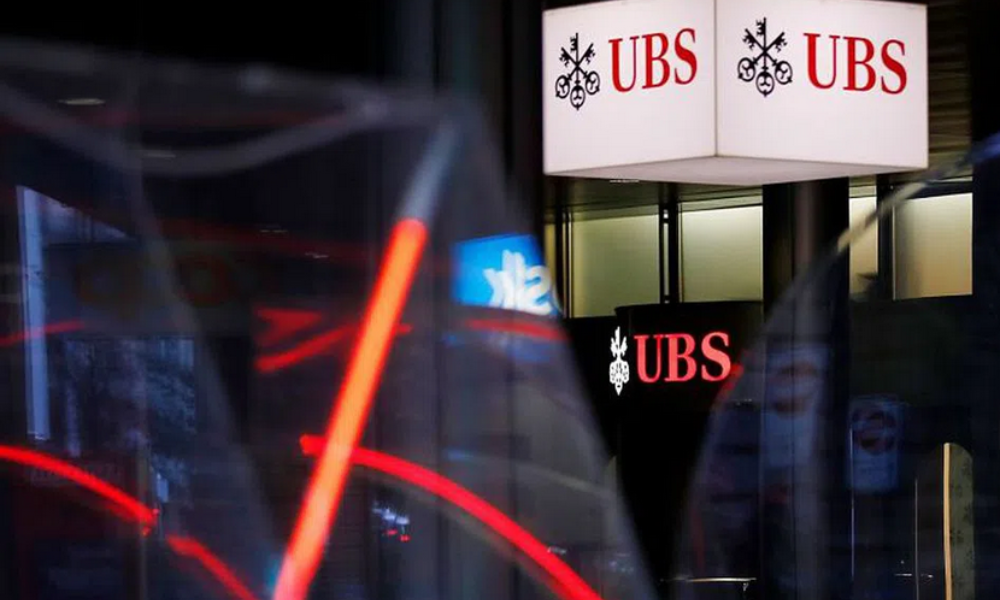

UBS Group AG has begun the sale of hotly-anticipated additional tier 1 bonds, marking its first issuance of the securities since Credit Suisse’s writedown of about $17 billion of the debt.
The bank is offering two dollar-denominated perpetual tranches callable in five and 10 years, according to a person familiar with the matter, who asked not to be identified because they’re not authorized to speak about it. Initial price discussions are at about 10% for the shorter tranche and around 10.125% for the longer one. The deal may price today.
A UBS representative confirmed that the bank is selling AT1s but declined to comment further.
The new issuance will bolster UBS’s AT1 capital layer — an important buffer that helps banks comply with core capital requirements without relying solely on more expensive equity. The lender recently called a S$700 million ($519 million) bond and it also has a $2.5 billion note that reaches its first early repayment date in January, based on data compiled by Bloomberg.
The new notes have an attractive yield, with UBS’s existing dollar AT1s offering an average of about 9.6% until their next call date, based on data compiled by Bloomberg. They also contain a mechanism that would allow the bonds to be converted into ordinary shares once the bank’s articles of association are amended to provide enough conversion capital.
“It looks cheap to peers and in my opinion will be significantly oversubscribed,” said Laurent Frings, head of credit research at Aegon Asset Management. The equity conversion mechanism — likely a response to the Credit Suisse drama — is also positive, he said.
“In terms of optics and the likelihood of seeing another trigger happening and shareholders getting something versus AT1 holders getting zero, this is definitely better,” he said.
The March wipeout of Credit Suisse’s AT1s as part of the UBS rescue deal shook the market, causing the biggest daily slump in the history of the asset class. A last-minute tweak of Swiss law allowed the writedown to go ahead even as Credit Suisse shareholders managed to preserve some value in the deal.
But the market has made something of a comeback since. Major banks have continued to call their bonds and issuance restarted with the first euro-denominated offerings in June. BNP Paribas SA was the first European bank since the collapse to sell an AT1 in dollars. It tweaked the terms of the notes so that they’d convert to shares rather than be written down if its capital ratio falls below a certain level.
The UBS issuance is “an attempt to restore confidence in the market regarding these instruments, notwithstanding technicalities with the writedown and Swiss-specific language,” said Ugo Lagrotta, a treasury asset and liability management advisor who worked at UBS until last year.
“I am convinced that going forward, there will be better alignment between jurisdictions in the industry. I would not expect to see another event like the one we witnessed in March,” he said.

AI is no replacement for trusted financial advisors, but it can meaningfully enhance their capabilities as well as the systems they rely on.

Prudential's Jordan Toma is no "Finfluencer," but he is a registered financial advisor with four million social media followers and a message of overcoming personal struggles that's reached kids in 150 school across the US.

GReminders is deepening its integration partnership with a national wealth firm, while Advisor CRM touts a free new meeting tool for RIAs.

The Texas-based former advisor reportedly bilked clients out of millions of dollars, keeping them in the dark with doctored statements and a fake email domain.

The $3.3 trillion tax and spending cut package narrowly got through the upper house, with JD Vance casting the deciding vote to overrule three GOP holdouts.
Orion's Tom Wilson on delivering coordinated, high-touch service in a world where returns alone no longer set you apart.
Barely a decade old, registered index-linked annuities have quickly surged in popularity, thanks to their unique blend of protection and growth potential—an appealing option for investors looking to chart a steadier course through today's choppy market waters, says Myles Lambert, Brighthouse Financial.
